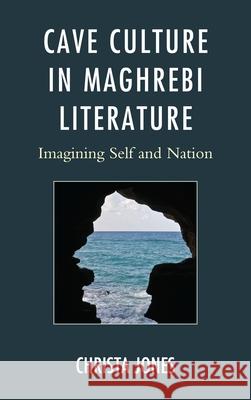Cave Culture in Maghrebi Literature: Imagining Self and Nation » książka
Cave Culture in Maghrebi Literature: Imagining Self and Nation
ISBN-13: 9780739168752 / Angielski / Twarda / 2012 / 214 str.
Cave Culture in Maghrebi Literature: Imagining Self and Nation discusses key postcolonial Francophone North African texts, centering on folktales, war, Berber traditions, femininity, sexuality, the Algerian War of Independence (1954-1962), and the Algerian Civil War (1992-1999). It explores the literary and cultural evidence testifying to the role of the cave as a locus of worship, transfiguration, dominance, and revelation in the context of colonial and postcolonial power struggles, and its wider significance in the context of nationalism and femininity, sexuality, and postcolonial identity construction. Historically, the cave has symbolized the explosive colonial and postcolonial struggles. It was a crucial site of colonial subjugation in North Africa during the colonial conquest in the nineteenth century and during the Algerian War of Independence in the twentieth century. Featuring narratives by authors such as Yamina Mechakra, Georges Buis, Tahar Ben Jelloun, Maissa Bey, Assia Djebar, Driss Chraibi, Hawa Djabali, Mohammed Dib, Nabile Fares, Lareej Waciny, and filmmaker Moumen Smihi, this book examines the cave as a metaphor of the collective imaginary of the North African literary subject and offers new insights into the field of Francophone literary studies. The complexity of the cave metaphor in this body of literature mirrors the struggle for identity at work in Francophone postcolonial literature: be it the struggle for colonial independence, the articulation of femininity, or, in a broader framework, the tensions at work in hybridized societies that are firmly rooted in tradition but at the same time curiously turned toward the Occident. Literary caves are firmly situated in the physical and psychic territories of North Africa, yet they offer bridges to the West and in particular to continental France. A combination of religious mysticism and natural splendor makes the cave a powerful symbol that has had a profound impact on the imaginations of artists on both sides of the Mediterranean. The literary cave has a strong hold on the Algerian and Moroccan collective imaginary and often stands as a metaphor for the homeland: the patrie. It defines the characters' subjectivity, on both a conscious and unconscious level--as shown by its many literary manifestations, be it in folktales, feminist, war, or love narratives.











